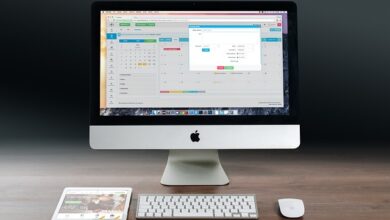Best Nighttime Study Habits for Maximum Retention

Studying at night can be a double-edged sword. On one hand, the quiet and calm environment can foster deep focus and creativity. On the other hand, poor habits can lead to fatigue, reduced productivity, and even burnout. To make the most of your nighttime study sessions, it’s essential to adopt strategies that enhance memory retention, improve concentration, and promote overall well-being.
In this guide, we’ll explore the best nighttime study habits to help you maximize retention while maintaining a healthy balance. Whether you’re preparing for exams, working on projects, or simply reviewing material, these tips will ensure your late-night efforts are both effective and sustainable.
1. Why Study at Night
Nighttime offers several advantages for studying:
- Fewer Distractions : With fewer people around and less noise, you can focus more deeply.
- Enhanced Creativity : Some studies suggest that creative thinking peaks during evening hours.
- Personal Preference : Many individuals feel more alert and productive at night due to their natural circadian rhythms.
However, it’s crucial to balance productivity with rest to avoid compromising your health or academic performance.
2. Create an Optimal Study Environment
Your surroundings play a significant role in how effectively you study. Here’s how to set up a conducive nighttime study space:
- Dim Lighting : Use soft, warm lighting instead of harsh fluorescent lights to reduce eye strain.
- Comfortable Seating : Ensure your chair and desk are ergonomically designed to prevent discomfort.
- Minimize Noise : Use earplugs, white noise machines, or calming music to block out distractions.
- Declutter Your Space : A clean, organized workspace promotes mental clarity and focus.
A well-prepared environment helps you stay engaged without unnecessary interruptions.
3. Use the Pomodoro Technique
The Pomodoro Technique is a time management method that breaks work into intervals (typically 25 minutes) followed by short breaks. This approach prevents burnout and keeps your brain fresh during long study sessions.
How It Works:
- Set a timer for 25 minutes and focus solely on studying.
- Take a 5-minute break to stretch, hydrate, or relax.
- After four cycles, take a longer break (15–30 minutes).
This structured rhythm enhances concentration and retention while preventing mental exhaustion.
4. Leverage Active Learning Strategies
Passive reading or highlighting isn’t enough to retain information. Instead, engage with the material actively using these techniques:
- Summarize in Your Own Words : Write brief summaries of key concepts after each section.
- Teach What You’ve Learned : Explain topics aloud as if teaching someone else—it reinforces understanding.
- Use Flashcards : Tools like Anki or Quizlet help reinforce memorization through spaced repetition.
- Solve Practice Problems : For subjects like math or science, applying knowledge to real-world scenarios solidifies learning.
Active engagement ensures deeper comprehension and better recall.
5. Prioritize Sleep Over Cramming
While pulling all-nighters might seem tempting, sacrificing sleep harms both short-term performance and long-term retention. Research shows that adequate sleep strengthens memory consolidation—the process by which your brain stores new information.
Tips for Balancing Study and Sleep:
- Set a Hard Stop Time : Decide when you’ll stop studying and stick to it.
- Get 7–9 Hours of Sleep : Aim for the recommended amount to wake up refreshed and ready to tackle the next day.
- Review Before Sleeping : Spend the last 20–30 minutes reviewing critical material—your brain processes this information during sleep.
Remember, quality rest amplifies the benefits of your hard work.
6. Incorporate Review Sessions Before Bed
Studies have shown that reviewing material right before bed improves memory retention. During sleep, your brain consolidates recently acquired information, making it easier to recall later.
How to Implement This Habit:
- Dedicate the final portion of your study session to revisiting notes or flashcards.
- Focus on high-priority topics or challenging areas.
- Avoid introducing entirely new concepts, as they may overwhelm your mind.
This simple habit maximizes the efficiency of your nighttime efforts.
7. Stay Hydrated and Snack Smart
Proper nutrition and hydration are vital for maintaining energy levels and cognitive function during nighttime study sessions.
Healthy Snack Ideas:
- Nuts and seeds (rich in healthy fats and protein).
- Fresh fruits like bananas or berries (natural sugars provide sustained energy).
- Dark chocolate (boosts mood and focus in moderation).
- Whole-grain crackers with hummus (balanced carbs and fiber).
Hydration Tips:
- Drink water throughout your session to stay hydrated.
- Limit caffeine intake—too much can disrupt sleep patterns.
Fueling your body properly supports mental clarity and stamina.
8. Avoid Digital Distractions
Electronic devices can derail your focus and reduce productivity. To minimize distractions:
- Enable Do Not Disturb Mode : Silence notifications on your phone or laptop.
- Use Website Blockers : Apps like Freedom or Cold Turkey restrict access to distracting websites.
- Limit Social Media : Allocate specific times for checking social platforms, if necessary.
By controlling digital temptations, you create a focused environment conducive to learning.
9. Practice Mindfulness and Relaxation
Studying late into the night can sometimes lead to stress or anxiety. Practicing mindfulness techniques helps calm your mind and maintain focus.
Techniques to Try:
- Deep Breathing Exercises : Inhale deeply for 4 seconds, hold for 4 seconds, then exhale for 4 seconds.
- Meditation Breaks : Spend 5–10 minutes meditating to reset your mental state.
- Stretching : Gentle stretches relieve tension and improve blood flow.
These practices not only enhance concentration but also promote relaxation before bedtime.




